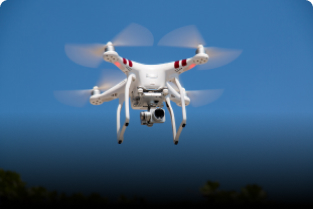In recent years, drones have become one of the most exciting innovations in technology, finding applications across industries — from agriculture and logistics to defense and filmmaking. Behind these powerful flying machines are skilled drone engineers, who design, build, and maintain drones for specific purposes. If you’re fascinated by robotics, aerodynamics, and electronics, a career as a drone engineer could be ideal. But what qualifications do you actually need to enter this field? Let’s find out.
1. Educational Qualifications
To become a drone engineer, you’ll need a strong foundation in science, mathematics, and engineering. Here are the most common educational paths:
-
Bachelor’s Degree: A degree in one of the following disciplines is typically required:
-
Aerospace Engineering
-
Mechanical Engineering
-
Electrical or Electronics Engineering
-
Robotics Engineering
-
Computer Science or Mechatronics
These programs cover essential topics like aerodynamics, propulsion systems, circuit design, control systems, and programming—all crucial for designing and maintaining drones.
-
-
Diploma or Certification Courses: For those who prefer a shorter route, various institutes offer diploma programs or specialized certifications in drone technology, UAV (Unmanned Aerial Vehicle) design, and drone piloting. These are ideal for gaining practical knowledge quickly.
2. Technical Skills
Drone engineering requires a blend of multiple technical skills, including:
-
CAD and Simulation Tools: Knowledge of software like AutoCAD, SolidWorks, and MATLAB helps in designing and testing drone models.
-
Programming: Familiarity with programming languages such as Python, C++, or Arduino is essential for drone control systems and automation.
-
Electronics and Embedded Systems: Understanding microcontrollers, sensors, GPS, and wireless communication modules is critical.
-
Aerodynamics and Propulsion Systems: Drone engineers must know how air flow, lift, and propulsion systems affect flight performance.
-
AI and Machine Learning (Optional but Advantageous): As drones become smarter, engineers who can integrate AI for navigation and object detection are in high demand.
3. Licensing and Certification
In addition to academic qualifications, many countries require drone engineers or operators to obtain certifications or licenses:
-
Drone Pilot License (for those who also want to test or operate drones).
-
DGCA Certification (in India) for commercial drone operations.
-
FAA Part 107 License (in the U.S.) for flying drones professionally.
These certifications ensure that engineers understand safety regulations, airspace restrictions, and operational protocols.
4. Practical Experience
Hands-on experience is one of the most important aspects of becoming a drone engineer. You can gain this through:
-
Internships or research projects in robotics, aerospace, or defense organizations.
-
Personal drone projects where you build or program drones yourself.
-
Workshops and competitions that focus on UAV design, flight simulation, or drone racing.
Employers value candidates who can demonstrate real-world experience beyond classroom learning.
5. Soft Skills
Besides technical expertise, drone engineers also need:
-
Problem-solving and analytical thinking for troubleshooting design or flight issues.
-
Creativity to develop innovative drone designs.
-
Attention to detail to ensure safety and precision.
-
Teamwork and communication skills, especially when collaborating with programmers, pilots, or clients.
Conclusion
Becoming a drone engineer requires a solid educational foundation in engineering, hands-on experience with hardware and software, and a keen interest in aerial technology. As industries increasingly adopt drone applications, the demand for skilled engineers continues to rise. Whether you aim to work in defense, agriculture, delivery services, or cinematography, building your qualifications in drone technology can open the door to an exciting and futuristic career.

